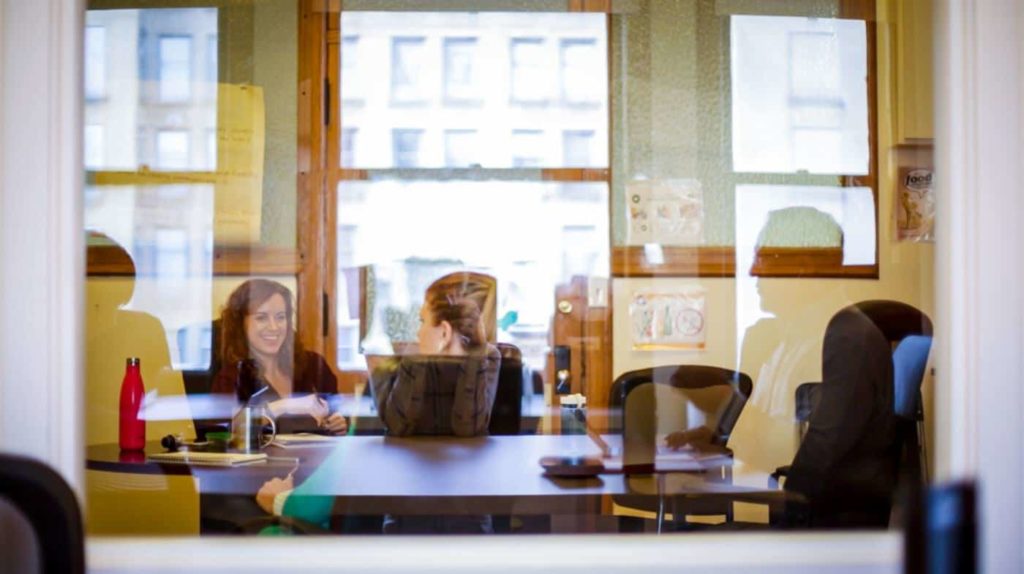
As Discourse gears up to launch our innovative membership platform in spring 2018, we’ve been working closely with the Membership Puzzle Project, a partnership between Dutch journalism platform De Correspondent and New York University. Led by NYU professor and media critic Jay Rosen, the initiative looks at how membership models can rebuild trust between journalists and the public, and support quality reporting.
Jay will be participating in a conversation on today’s crisis of trust in journalism with Discourse founder and CEO Erin Millar. It takes place on Dec. 7 in Vancouver.
Ahead of the event, I chatted with Jay about why membership models could be the key to sustaining public service journalism and why he decided to collaborate with Discourse:
Anita: To get started, I’ll ask a question at the heart of our Dec. 7 event: Could news media benefit from this recent crisis of trust in journalism and politics?
Jay Rosen: Is it possible
that something good could come of this? Yes, it is possible. I say that because the relationship between journalism and its natural constituency, an informed and engaged public, had become badly misaligned over the decades.
Now, because there is an economic collapse and a deficit of trust happening at the same time, more and more journalists are realizing that they have to reground their craft in a better relationship to the public.
In a situation like that, renewal and reform are far more likely. There is more room to rethink ancient practices and demonstrate the validity of new principles, like “reporting with, rather than for the community” and “show your work if you wanted people to trust your conclusions.”
Through the Membership Puzzle Project, you champion a membership model of journalism, which speaks to the “renewal and reform” you refer to. As someone who’s studied business models in journalism for some time, what was it about De Correspondent‘s model that made you stand up and take notice?
I had met the founders years ago when they were young digital upstarts inside the legacy media corporations of The Netherlands.
I started paying attention to De Correspondent in 2013 when they set a record (since broken) for crowdfunding a news startup. But I only became a close reader of their experiment when they began explaining in Medium posts in English how they wanted the reader-reporter relationship to work, and their approach to reader engagement.
The more I studied them, the more I realized what was distinctive about De Correspondent was not just the crowdfunding, which drew so much attention. It was the way they had optimized the entire operation for trust. And that’s how I explained my involvement when this year, we announced their expansion to the American market, along with my role as their ambassador to the U.S.
Why do you think membership is the future of journalism? And why did you launch the Membership Puzzle Project?
I would never say membership is the future of journalism. That claims far too much. But it might be one way to sustain parts of a public interest press. The reason I say that is simple: 2017 was the year when everyone who pays attention to these things in the industry realized that digital advertising was never going to support real journalism.
Getting support from taxpayers is fraught with difficulties, especially in the U.S., given the state of our politics. That leaves foundations, which are not reliable over the long-term, and billionaires, whose whims can be cruel.
The final alternative is to find the necessary revenue from readers. Here, there are two models: subscription and membership. These are not the same thing. Subscription means you pay your money and you get the product. It’s a commercial transaction. In membership, you join the cause because you believe in the importance of the work.
The reason I am so interested in membership is that it doesn’t require a digital paywall. If you believe in the importance of the work, you probably want to it spread to non-members. Therefore, the journalism supported by a portion of the public can inform the entire public. This makes sense for a public good like investigative journalism and accountability reporting.
The Membership Puzzle Project is studying how membership has worked and not worked for news sites. And it is bringing the lessons of De Correspondent‘s experience to those who want to benefit from it.
Now, on to your relationship with Discourse Media. How did you come across Discourse, and why did you decide to collaborate with us?
Erin Millar came to visit me and Rob Wijnberg, the editor-in-chief of De Correspondent, when he was in New York. That’s when I was introduced toDiscourse Media.
I thought she had a plan, some good ideas, a lot of determination and a mischievous gleam in her eye that builders of things often have.
Also, it seemed to me that Discourse had made a start on what I said before: re-aligning journalism with its public. And she was interested in starting a membership program. The Membership Puzzle Project was created for situations like that.
What do you think the goal of journalism should be in 2018? How should journalists aim to serve the public in this current political climate?
I think journalists have to learn how to operate — and publish — in a way that makes deposits into the trust bank. They can’t keep making withdrawals.
For example, when you bring forward an important story based entirely on confidential sources, that’s a withdrawal from the trust bank. When you expose a glaring problem, but never return to it to show people what happened months or a year later, that, too, is a withdrawal from the trust bank.
Journalists in 2018 have to learn to operate in a way that not only produces great stories, but reproduces public confidence in what they do.
This interview was edited for length and clarity.
Now, I’ll flip that question back to you, dear readers: How can journalists better serve the public in 2018? [end]


